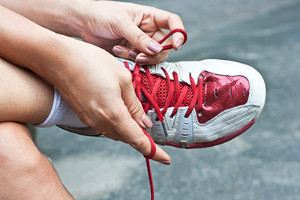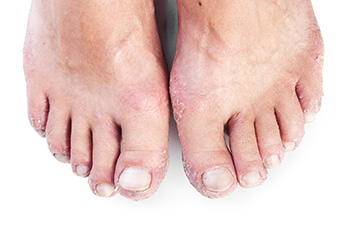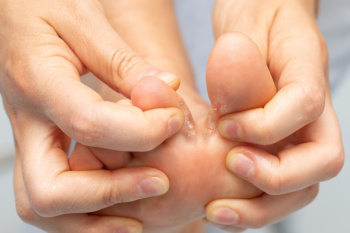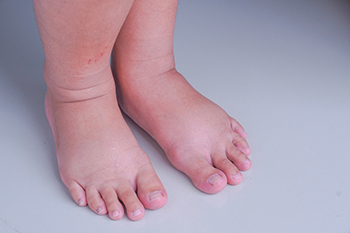Items filtered by date: May 2024
The Power of Running Is Enhanced by Wearing Proper Footwear

Running offers a multitude of benefits for both physical and mental well-being. It strengthens the cardiovascular system, improves lung function, and boosts metabolism, aiding in weight management and overall health. Beyond the physical advantages, running also promotes mental clarity, stress relief, and a sense of accomplishment. However, to reap these benefits safely and effectively, investing in good running shoes is vital. Quality footwear provides essential support, cushioning, and stability, reducing the risk of injuries such as sprains, strains, and stress fractures. Proper running shoes are designed to accommodate the unique biomechanics of each individual, offering optimal shock absorption and alignment for a smoother, more comfortable stride. By selecting the right shoes for their foot type and running style, runners can enhance performance, minimize discomfort, and prolong their running journey, ensuring they can continue to enjoy the myriad benefits that running has to offer for years to come. Injuries to the foot and ankle can happen from running, and it is essential the right running shoes are chosen. It is suggested that you contact a podiatrist who can treat foot and ankle injuries, and guide you on what the best type of running shoes are right for you.
You should always make sure your running shoes fit properly in order to avoid injury. For more information, contact Dr. Odin De Los Reyes from Connecticut. Our doctor can provide the care you need to keep you pain-free and on your feet.
Choosing the Right Running Shoe for Your Foot Type
Improper shoe sizing can cause a myriad of problems for your feet. Shoes that don’t fit you properly can lead to muscular imbalances in your body, which can result in foot, knee, and hip injuries.
Tips for Finding the Right Running Shoe
- Make sure you have a thumb’s width of wiggle room between the end of your longest toe and the front of the shoe.
- There should be little to no slipping at the heel
- Don’t assume your size in one shoe brand will be your size in another
- Do not lace up your shoes too tightly
- Walk around in the store with your new shoes before you buy them
If you have any questions please feel free to contact our our offices located in Southbury and Farmington, CT . We offer the newest diagnostic and treatment technologies for all your foot and ankle needs.
Is It Foot Fungus or Psoriasis?

Deciphering whether you have an athlete’s foot infection or psoriasis on the feet can be difficult. Understanding the symptoms can help. Athlete’s foot, a contagious fungal infection thriving in warm, moist environments, typically appears as red, scaly patches between toes or under nails. It may cause itching and discomfort if untreated. On the other hand, psoriasis, an autoimmune disorder, manifests with similar symptoms but is not contagious. Psoriasis lesions may cause silvery scales and vary in color over time. They often involve the soles and nails, causing soreness or tenderness. Nail changes, like pitting or discoloration, are common in psoriasis. While athlete’s foot primarily itches, psoriasis can lead to joint stiffness in addition to discomfort. Treatment approaches also differ. Athlete's foot is usually treated with antifungal medications, while psoriasis management may involve topical treatments, light therapy, or systemic medications. If you have a type of rash on your feet, it is suggested that you schedule an appointment with a podiatrist for a proper diagnosis and appropriate treatment.
Everyday foot care is very important to prevent infection and other foot ailments. If you need your feet checked, contact Dr. Odin De Los Reyes from Connecticut. Our doctor can provide the care you need to keep you pain-free and on your feet.
Everyday Foot Care
Often, people take care of their bodies, face and hair more so than they do for their feet. But the feet are a very important aspect of our bodies, and one that we should pay more attention to. Without our feet, we would not be able to perform most daily tasks.
It is best to check your feet regularly to make sure there are no new bruises or cuts that you may not have noticed before. For dry feet, moisturizer can easily be a remedy and can be applied as often as necessary to the affected areas. Wearing shoes that fit well can also help you maintain good foot health, as well as making it easier to walk and do daily activities without the stress or pain of ill-fitting shoes, high heels, or even flip flops. Wearing clean socks with closed shoes is important to ensure that sweat and bacteria do not accumulate within the shoe. Clean socks help to prevent Athlete’s foot, fungi problems, bad odors, and can absorb sweat.
If you have any questions please feel free to contact our offices located in Southbury and Farmington, CT . We offer the newest diagnostic and treatment technologies for all your foot and ankle needs.
Key Facts About Children’s Athlete’s Foot

Athlete's foot, a fungal infection affecting the skin of the feet, is not exclusive to adults, as children can also fall prey to this uncomfortable condition. Commonly caused by the same fungi responsible for ringworm and jock itch, athlete's foot thrives in warm, moist environments, making children's sweaty feet particularly susceptible. Symptoms can include itching, burning, and redness, often between the toes or on the soles of the feet. Children can contract athlete's foot by walking barefoot in public areas, such as swimming pools, locker rooms, or communal showers. Sharing towels, socks, or shoes with an infected individual can also facilitate transmission. Teaching children proper foot hygiene, such as keeping feet clean and dry, wearing breathable footwear, and avoiding walking barefoot in public spaces, can help prevent athlete's foot and promote overall foot health. If your child has itchy feet, it is suggested that you consult a podiatrist who can properly diagnose and treat athlete’s foot, which may include prescribed medication.
Athlete’s Foot
Athlete’s foot is often an uncomfortable condition to experience. Thankfully, podiatrists specialize in treating athlete’s foot and offer the best treatment options. If you have any questions about athlete’s foot, consult with Dr. Odin De Los Reyes from Connecticut. Our doctor will assess your condition and provide you with quality treatment.
What Is Athlete’s Foot?
Tinea pedis, more commonly known as athlete’s foot, is a non-serious and common fungal infection of the foot. Athlete’s foot is contagious and can be contracted by touching someone who has it or infected surfaces. The most common places contaminated by it are public showers, locker rooms, and swimming pools. Once contracted, it grows on feet that are left inside moist, dark, and warm shoes and socks.
Prevention
The most effective ways to prevent athlete’s foot include:
- Thoroughly washing and drying feet
- Avoid going barefoot in locker rooms and public showers
- Using shower shoes in public showers
- Wearing socks that allow the feet to breathe
- Changing socks and shoes frequently if you sweat a lot
Symptoms
Athlete’s foot initially occurs as a rash between the toes. However, if left undiagnosed, it can spread to the sides and bottom of the feet, toenails, and if touched by hand, the hands themselves. Symptoms include:
- Redness
- Burning
- Itching
- Scaly and peeling skin
Diagnosis and Treatment
Diagnosis is quick and easy. Skin samples will be taken and either viewed under a microscope or sent to a lab for testing. Sometimes, a podiatrist can diagnose it based on simply looking at it. Once confirmed, treatment options include oral and topical antifungal medications.
If you have any questions, please feel free to contact our offices located in Southbury and Farmington, CT . We offer the newest diagnostic and treatment technologies for all your foot care needs.
Why Live with Pain and Numbness in Your Feet?
Why Are My Feet Swollen?

Swollen feet, a common and often uncomfortable condition, can stem from various factors. One primary cause is fluid retention, which occurs when excess fluid accumulates in the tissues, leading to swelling and puffiness. This fluid buildup can result from prolonged standing or sitting, particularly in hot weather, as well as hormonal changes during pregnancy or menstruation. Additionally, certain medical conditions, such as heart failure, kidney disease, or liver problems, can impair the body's ability to regulate fluid levels and contribute to swelling in the feet and ankles. Injuries such as sprains or fractures may also lead to swelling as the body responds to tissue damage and inflammation. Furthermore, lifestyle factors like obesity or poor circulation can exacerbate swelling in the lower extremities. Identifying the underlying cause of swollen feet is essential for proper management and treatment, which may include lifestyle modifications, medication, or medical intervention to address the root issue and alleviate discomfort. A podiatrist can determine the cause of swollen feet. If you have this condition, it is suggested that you confer with this foot doctor who can offer appropriate treatment solutions.
Swollen feet can be a sign of an underlying condition. If you have any concerns, contact Dr. Odin De Los Reyes of Connecticut. Our doctor can provide the care you need to keep you pain-free and on your feet.
Swollen feet are a common ailment among pregnant women and people who stand or sit for extended periods. Aging may increase the possibility of swollen feet and patients who are obese often notice when their feet are swelling too. There may be medical reasons why swollen feet occur:
- Phlebitis - A condition that causes the veins to become inflamed and can also cause leg pain.
- Liver disease - This may lead to low blood levels of albumin which is a protein. This can cause fluid in the blood to pass into the tissues and several areas of the body can become swollen.
- Heart failure - When the heart doesn’t pump properly the blood that is normally pumped back to the heart can pool in the veins of the legs causing swollen feet.
- Kidney disease - One of the main functions of the kidneys is releasing excess fluid in the body. This type of condition can make it difficult for the kidneys to function properly, and as a result the feet may become swollen.
- Deep-vein thrombosis (DVT)- This is a serious condition where blood clots form in the veins of the legs. They can block the return of blood from the legs to the heart which may cause the feet to swell. It is important to be treated by a podiatrist if this condition is present.
Swollen feet can also be caused by bone and tendon conditions, including fractures, arthritis, and tendinitis. Additionally, there may be skin and toenail conditions and an infection may cause the feet to swell. Patients who take medicine to treat high blood pressure may be prone to getting swollen feet.
Many patients elevate their feet to help relieve the swelling and this is generally a temporary remedy. When a podiatrist is consulted the reason behind the swelling can be uncovered and subsequently treated.
If you have any questions please feel free to contact our offices located in Southbury and Farmington, CT . We offer the newest diagnostic tools and technology to treat your foot and ankle needs.

